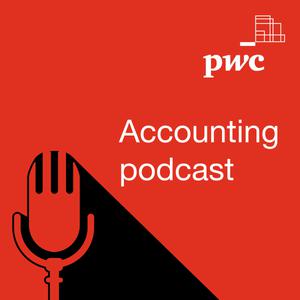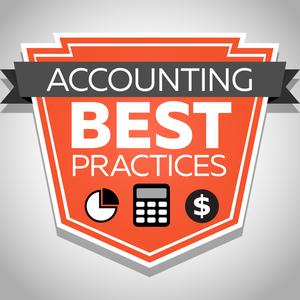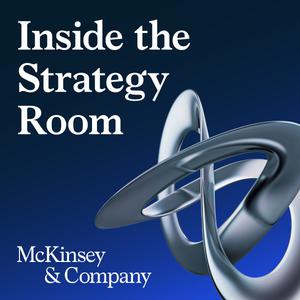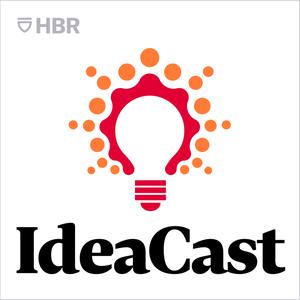
Financial Management (FM) magazine
Financial Management (FM) magazine
Driving innovation in management accounting
- 14 minutes 57 secondsAI’s future: Figuring out what it means for finance teams
Zach Rattner, co-founder of global software development company Yembo, says that when it comes to artificial intelligence, organisations are eager to get started with AI but wary of the pitfalls. “Every group is figuring out what does it mean for them, and the rules of how it is going to end up are still being decided,” he said on this episode of the FM podcast, recorded at UK & Ireland ENGAGE.
Rattner explains beneficial ways to explore those tools to help professionals and leaders work better with them, what interpersonal skills professionals could sharpen as organisations become more driven by technology, and why it’s counterproductive to resist experimenting with technology.
What you’ll learn from this episode:
§ Where finance professionals can expand their thinking around the possibilities of AI.
§ How to avoid “losing your seat at the table” for AI conversations.
§ Platforms that can help professionals upskill and enhance AI literacy.
§ The essential interpersonal skills to develop for the digital era.
§ Why fear of failure is a roadblock to AI proficiency.
22 January 2025, 7:31 pm - 12 minutes 36 secondsPower skills and continuous learning: Two key future-ready steps
Former CIMA President Sarah Ghosh, FCMA, CGMA, discusses the ways the finance function is evolving and the skills finance professionals will need to develop to lead their organisations on that journey.
Ghosh explains the value of continous learning, some of the “power skills” management accountants and finance professionals can adopt to drive value for their organisations as business partners, and what finance professionals need to start thinking about as their roles broaden.
What you’ll learn from this episode:
§ Three themes to think about as the finance profession evolves.
§ The interplay between data storytelling and technology.
§ What “power skills” are critical to navigating the profession in the future.
§ Key skills for becoming a better business partner.
§ The career development opportunities that emanate from expanding your role.
15 January 2025, 12:50 pm - 15 minutes 26 secondsDaily actions for success as a finance business partner
Financial trainer, speaker, and author Andi Lonnen discusses the skills finance professionals need to develop to move into a finance business partner role. Lonnen’s formula for success sets out the ways finance professionals can upskill to move into the role with knowledge, creativity, and confidence.
She also discusses the importance of speaking the language of other departments, where a background in finance can be advantageous to the role, and how professionals looking to make the transition can develop a deeper understanding of their organisation’s goals and challenges.
What you’ll learn from this episode:
§ Nine skills finance professionals need to be effective business partners.
§ Ways to demonstrate and translate finance skills into business language.
§ The importance of getting “personal” when forming connections across departments.
§ How finance professionals can add value to their organisations in a business partner role.
§ Why remembering to be human is fundamental to success.
11 December 2024, 4:40 pm - 8 minutes 51 secondsDecember FM: Capital investment decisions, AI in Power BI, and more
This episode features Oliver Rowe, the editor-in-chief of FM, detailing the contents of the December digital edition of the magazine.
The discussion summarises articles on topics that include skills development beyond core finance, using Excel modelling to avoid costly mistakes, and capital investment decision-making.
Rowe explains how members can access the most recent edition of the online magazine as well as the issue library.
Previous podcast episodes focusing on 2024 digital editions:
What you’ll learn from this episode:
- Coverage of the AICPA & CIMA leadership transition.
- Skills that CGMA designation holders have developed to advance their careers.
- A summary of an article on balancing in-office work and at-home work.
- Highlights of an article about Excel modelling and how it can minimise mistakes.
4 December 2024, 4:37 pm - 13 minutes 41 seconds‘Dance with the fear’: How accountants can seize the moment
Career coach Devya Athwal, ACMA, CGMA, discusses positive beliefs and steps that can help professional accountants become more confident in their roles.
Athwal, a speaker at UK & Ireland ENGAGE in October in London, also explains why transformation starts from within and how letting go of day-to-day fears can help professionals better accomplish their goals.
What you’ll learn from this episode:
§ Why Athwal believes that transformation starts with looking inward.
§ How accountants can overcome their own limiting beliefs.
§ Practical ways to channel a growth mindset.
§ Steps to building confidence in challenging environments.
§ The link between collaboration, knowledge sharing, and career development.
20 November 2024, 4:04 pm - 13 minutes 8 secondsKeep calm: Where stress can help us carry on with confidence
Naomi Dake, a wellbeing, leadership, and organisation development specialist, explains how to use stress as a tool to develop professionally, induce curiousity, and improve performance at work.
Dake also discusses the relationship between stress and mindset and the nonfinancial ways leaders and managers can invest in teams and employees to prioritise growth and wellbeing.
What you’ll learn from this episode:
§ The core attributes of a wellbeing culture.
§ The distiguishing factors between a healthy and unhealthy work environment.
§ Leadership practices that can inform a healthy work enviornment.
§ Psychological traits and tools that can help us work better under stress.
§ Why role-modelling is key to building a culture of growth and safety.
6 November 2024, 1:16 pm - 17 minutes 9 secondsA hunger for innovation: How one family-rooted company dreams big
Persistence has paid off for Ameena Ziauddin, FCMA, CGMA, president and managing director of Norfolk Foods in Sri Lanka, who sees value in the power of connection, whether on LinkedIn or over a cup of coffee.
What you’ll learn from this episode:
- Why memories such as being “on the roof” stand out to Ziauddin.
- The ways that Norfolk Foods emphasises and values innovation.
- How Ziauddin’s exposure to several industries has helped improve efficiencies and implement cost-saving initiatives.
- The value of having “a simple chat over a cup of coffee”.
- Ziauddin’s advice for the next generation of finance professionals.
23 October 2024, 4:51 pm - 8 minutes 46 secondsOctober FM: Recruitment fraud, ransomware response, the CFO remit
This episode features Oliver Rowe, the editor-in-chief of FM, detailing the contents of the October digital edition of the magazine.
Rowe highlights several articles, including a focus on cybersecurity.
Rowe explains how members can access the most recent edition of the online magazine as well as the issue library.
Previous podcast episodes focusing on 2024 digital editions:
What you’ll learn from this episode:
· The theme of the October digital edition.
· Finance’s role in mitigating ransomware threats and response to such incidents.
· The growing problem of recruitment fraud and how finance professionals can guard against it.
· Details of an article about how CFOs can strengthen their contribution to the business.
2 October 2024, 5:20 pm - 19 minutes 45 secondsAICPA & CIMA chair: ‘Every change comes with opportunity’
Simon Bittlestone, FCMA, CGMA, began his one-year term as CIMA president and AICPA & CIMA chair in June, and he joined the FM podcast for an interview in late July, discussing what he sees as three key opportunities for the accounting and finance profession.
In the episode, Bittlestone reviews his focus areas, explains the value of a technology background when leading technology initiatives, and details how seizing opportunity as it relates to today’s workforce can help to future-proof the profession.
What you’ll learn from this episode:
· Why he agrees that the profession faces challenges, which he views as opportunities.
· The area of accountants’ work that, according to Bittlestone, has understandable “pushback”.
· Three takeaways from Bittlestone on the ESG course offered in partnership with Oxford University.
· Why Bittlestone considers it important to focus on the profession’s future generations and accountants already in the profession.
· His thoughts on the retirement of AICPA & CIMA CEO Barry Melancon, CPA, CGMA.
11 September 2024, 2:43 pm - 17 minutes 35 secondsBlurred lines: Why some CFOs grapple with conflicting expectations
Paul Thambar, FCMA, CGMA, Ph.D., associate professor of accounting at Monash University in Australia, explains the obstacles CFOs face when transitioning to a business partner role and where organisations are setting ambiguous and conflicting expectations for finance leaders.
A recent AICPA & CIMA report on the role of the CFO was informed by Thambar’s research.
Thambar also discusses the challenges and opportunities for CFOs grappling with digitilisation and how aspiring CFOs can adopt a “progressive” approach to career development. Thambar also was a guest on a 2019 FM podcast episode.
What you’ll learn from this episode:
§ Why CFOs sometimes struggle to transition into a business partner role.
§ Some ways organisations are setting ambiguous and conflicting expectations.
§ How relationship building can help CFOs grow in their roles.
§ The importance of understanding digitilisation at “two levels”.
§ What it means to be a “progressive” CFO.
21 August 2024, 11:59 am - 7 minutes 53 secondsAugust FM: Digital transformation steps, meeting anxiety, gen AI
This episode features Oliver Rowe, the editor-in-chief of FM, detailing the contents of the August digital edition of the magazine.
Rowe highlights several articles, including the first column by CIMA President Simon Bittlestone, FCMA, CGMA. He also discusses articles on digital transformation, based on a previous FM podcast episode with author David Rogers; working with images in Excel; and dealing with meeting anxiety.
Rowe explains how members can access the most recent edition of the online magazine as well as the issue library.
Previous podcast episodes focusing on 2024 digital editions:
n February
n April
n June
What you’ll learn from this episode:
· Details on an article about digital transformation — and why many of the steps in such a transformation don’t include technology.
· Highlights of an Excel article by Liam Bastick, FCMA, CGMA.
· Advice on preparing for and overcoming anxiety about meetings.
· Options for accessing current and past digital editions.
31 July 2024, 3:47 pm - More Episodes? Get the App
Your feedback is valuable to us. Should you encounter any bugs, glitches, lack of functionality or other problems, please email us on [email protected] or join Moon.FM Telegram Group where you can talk directly to the dev team who are happy to answer any queries.
 PwC's accounting podcast
PwC's accounting podcast
 Accounting Best Practices with Steve Bragg
Accounting Best Practices with Steve Bragg
 Go Beyond Disruption
Go Beyond Disruption
 Inside the Strategy Room
Inside the Strategy Room
 HBR IdeaCast
HBR IdeaCast
 Business Daily
Business Daily